Put That Novel Down
Fiction is a fun and exciting way to explore new worlds, new characters and new adventures. Today’s society has developed an unhealthy obsession with entertainment, unaware that most of the information they consume is not always useful. From teenagers to adults, people love to read fiction, comics, and magazines. I can’t remember the last time I read something fictional that had real meaning. This is where the non-fiction comes into play.
The Daring Life And Dangerous Times Of Eve Adams by Jonathan Ned Katz
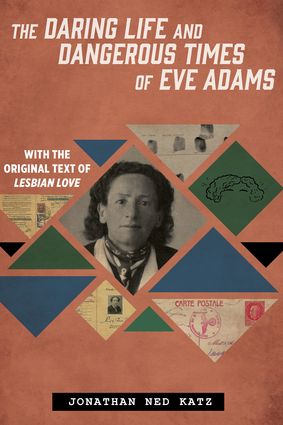
Historian Jonathan Ned Katz uncovers the forgotten story of radical lesbian Eve Adams and her long-lost book Lesbian Love
Born Chawa Zloczewer into a Jewish family in Poland, Eve Adams emigrated to the United States in 1912,took a new name, befriended anarchists, sold radical publications, and ran lesbian-and-gay-friendly speakeasies in Chicago and New York. Then, in 1925, Adams risked all to write and publish a book titled Lesbian Love.
Adams’s bold activism caught the attention of the young J. Edgar Hoover and the US Bureau of Investigation, leading to her surveillance and arrest. Adams was convicted of publishing an obscene book and of attempted sex with a policewoman sent to entrap her.
Adams was jailed and then deported back to Europe, and ultimately murdered by Nazis in Auschwitz. In The Daring Life and Dangerous Times of Eve Adams, acclaimed historian Jonathan Ned Katz has recovered the extraordinary story of an early, daring activist.
Carefully distinguishing fact from fiction, Katz presents the first biography of Adams, and the publisher reprints the long-lost text of Adams’s rare, unique book Lesbian Love.
What is Jewish-specific non-fiction?
Jewish-specific non-fiction is written from a Jewish perspective. It is typically written by Jewish authors and is generally about Jewish culture, religion, history, society and events. Non-fiction in this genre is often written with an international perspective.
Jewish Lesbian Scholarship in a Time of Change
Jewish Lesbian Scholarship in a Time of Change is the first major work in Jewish lesbian studies in more than a decade.
Once a vibrant field, few works in Jewish queer studies in recent years have looked at the experiences of, and scholarship on, Jewish women, feminists, and those identified as lesbians. Correcting a twenty-first century shift away from explicitly feminist investigations in Jewish queer and LBGTQ studies, this work signals a new trend of scholarly works in the field. The chapters span an array of genres, presenting the rich diversity of Jewish lesbians as they are, as well as of Jewish lesbian scholarship today. This collection makes an innovative contribution to Jewish studies, lesbian and queer studies, gender studies, as well as to racial and cultural diversity studies.
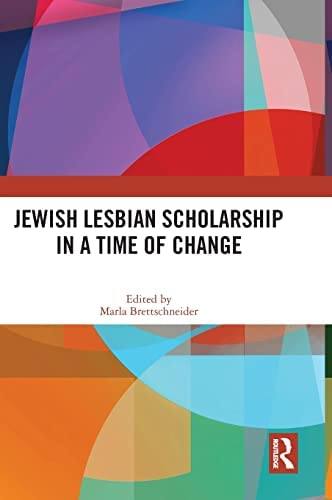
What are the benefits of Jewish-specific lesbian non-fiction?
The advantage of Jewish-specific nonfiction is that it portrays the Jewish experience in ways that are not often represented in literature. Another advantage is that these books are often written about experiences related to many Jews.
Another advantage is that these authors often cover topics not often covered in other non-fiction genres. These authors can write about experiences that society doesn’t often talk about.
A Rainbow Thread by Noam Sienna
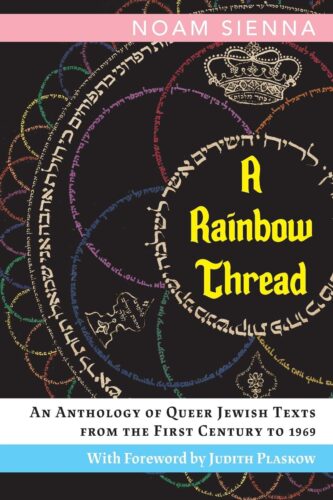
For many queer Jews, Jewish tradition seems like a rich tapestry which at best ignores them and at worst rejects them entirely. In this groundbreaking anthology, Noam Sienna shows that queerness and queer Judaism have been a constant subplot of Jewish history, if only we care to look. Spanning almost two millennia and containing translations from more than a dozen languages, The Rainbow Thread: An Anthology of Queer Jewish Texts From the First Century to 1969 collects for the first time more than a hundred sources on the intersection of Jewish and queer identities.
Covering poetry, drama, literature, law, midrash, and memoir, this anthology suggests that Jewish texts are not just obstacles to be overcome in the creation of queer Jewish life, but also potential resources waiting to be excavated. Through an unprecedented examination of the histories of gender and sexuality over two millennia of Jewish life around the world, this book inspires and challenges its readers to create a better future through a purposeful reflection on our past.
What are the different types of Jewish-specific nonfiction?
Jewish-specific nonfiction is a genre of Jewish literature that deals with the Jewish community and Jewish life in general. This includes biographies, political conflict, history and intellectual life.
Israel/Palestine and the Queer International by Sarah Schulman
In this chronicle of political awakening and queer solidarity, the activist and novelist Sarah Schulman describes her dawning consciousness of the Palestinian liberation struggle. Invited to Israel to give the keynote address at an LGBT studies conference at Tel Aviv University, Schulman declines, joining other artists and academics honoring the Palestinian call for an academic and cultural boycott of Israel. Anti-occupation activists in the United States, Canada, Israel, and Palestine come together to help organize an alternative solidarity visit for the American activist. Schulman takes us to an anarchist, vegan café in Tel Aviv, where she meets anti-occupation queer Israelis, and through border checkpoints into the West Bank, where queer Palestinian activists welcome her into their spaces for conversations that will change the course of her life. She describes the dusty roads through the West Bank, where Palestinians are cut off from water and subjected to endless restrictions while Israeli settler neighborhoods have full freedoms and resources.
As Schulman learns more, she questions the contradiction between Israel’s investment in presenting itself as gay friendly–financially sponsoring gay film festivals and parades–and its denial of the rights of Palestinians. At the same time, she talks with straight Palestinian activists about their position in relation to homosexuality and gay rights in Palestine and internationally. Back in the United States, Schulman draws on her extensive activist experience to organize a speaking tour for some of the Palestinian queer leaders whom she had met and trusted. Dubbed ‘Al-Tour,’ it takes the activists to LGBT community centers, conferences, and universities throughout the United States. Its success solidifies her commitment to working to end Israel’s occupation of Palestine, and it kindles her larger hope that a new ‘queer international’ will emerge and join other movements demanding human rights across the globe.
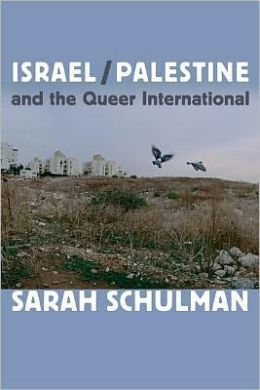
Not Always Easy
Non-fiction books are difficult to read. Unlike other books that are casually read or skimmed, it requires attention. People are less attentive these days, and non-fiction books increase focus and focus. Spend time reaching these Jewish -specific, queer-specific books too open your mind, and your world.
Queer Expectations by Zohar Weiman-Kelman
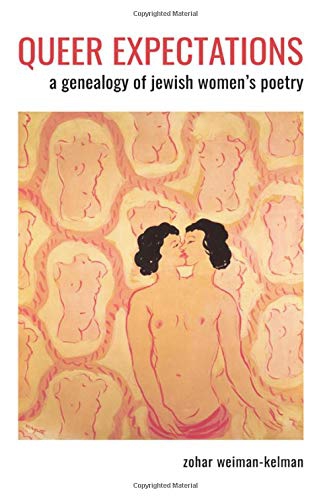
Jewish women have had a fraught relationship with history, struggling for inclusion while resisting their limited role as (re)producers of the future. In Queer Expectations, Zohar Weiman-Kelman shows how Jewish women writers turned to poetry to write new histories, developing ‘queer expectancy’ as a conceptual tool for understanding how literary texts can both invoke and resist what came before. Bringing together Jewish women’s poetry from the late nineteenth century, the interwar period, and the 1970s and 1980s, Weiman-Kelman takes readers on a boundary-crossing journey through works in English, Yiddish, and Hebrew, setting up encounters between writers of different generations, locations, and languages.
Queer Expectations highlights genealogical lines of continuity drawn by authors as diverse as Emma Lazarus, Kadya Molodowsky, Leah Goldberg, Anna Margolin, Irena Klepfisz, and Adrienne Rich. These poets push back against heteronormative imperatives of biological reproduction and inheritance, opting instead for connections that twist traditional models of gender and history. Looking backward in queer ways enables new histories to emerge, intervenes in a troubled present, and gives hope for unexpected futures.
